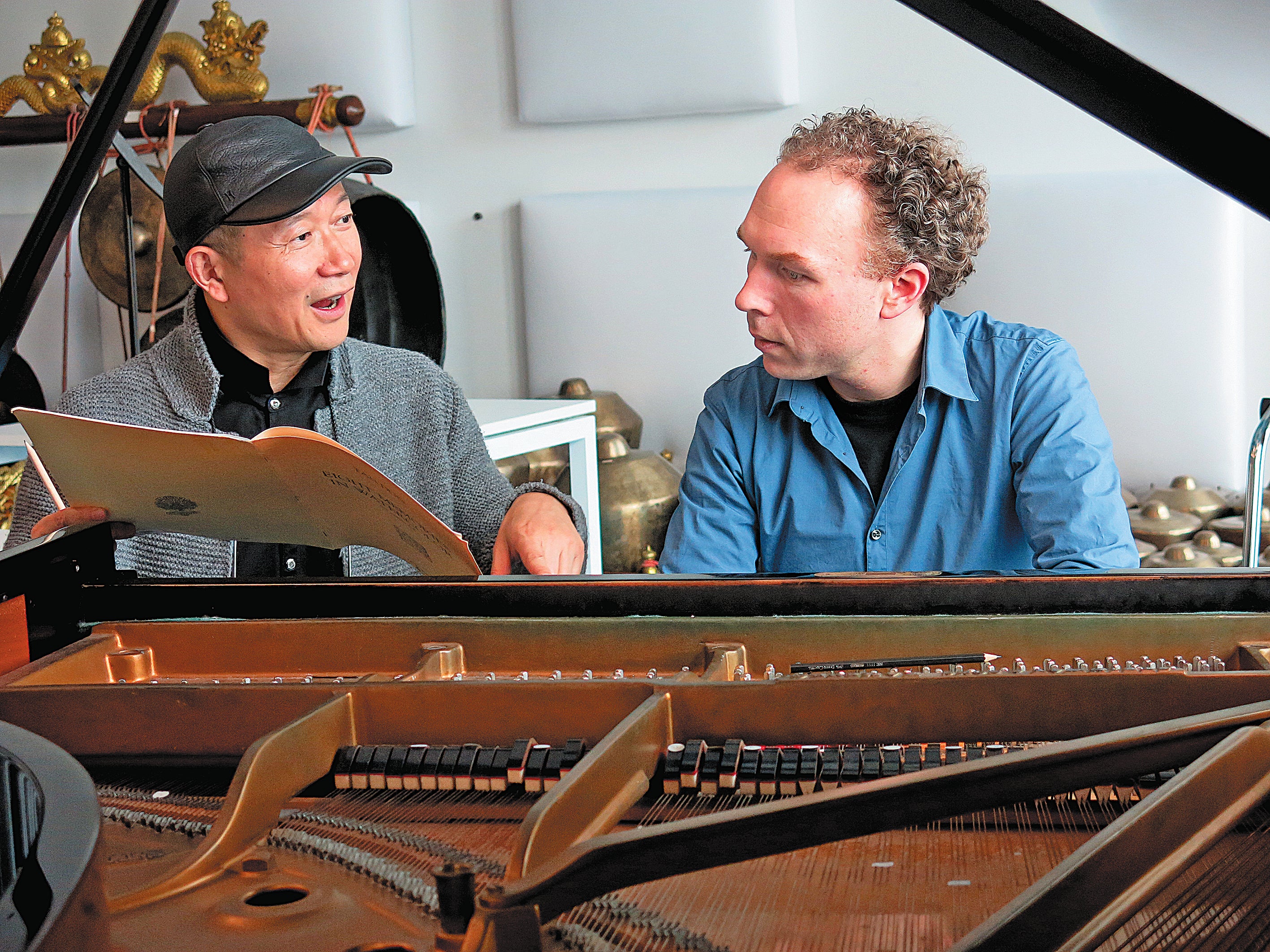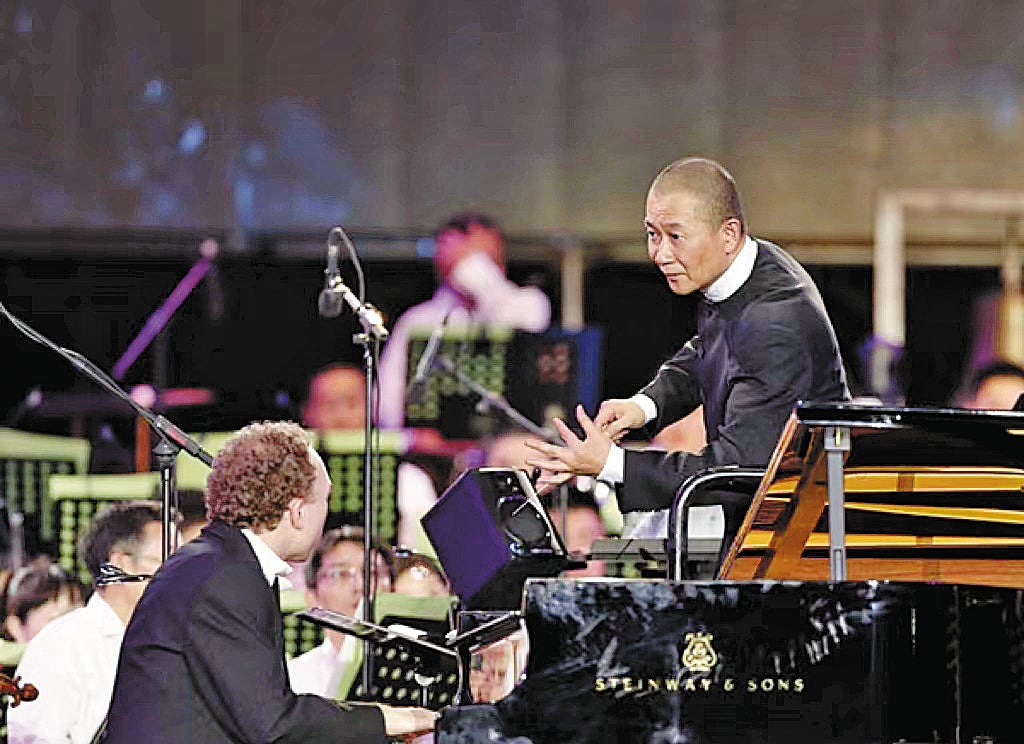Tuning into memories
THE ARTICLES ON THESE PAGES ARE PRODUCED BY CHINA DAILY, WHICH TAKES SOLE RESPONSIBILITY FOR THE CONTENTS

Composer Tan Dun has made a unique mark on the music scene with creative works bridging Eastern and Western traditions, as well as pushing the boundaries of classical music, traditional Chinese operas, and multimedia.
The composer released an album on June 10 titled Eight Memories in Watercolour, by leading classical music label Naxos. Featuring six piano works composed by Tan, the album is performed by the Dutch pianist Ralph van Raat.
“I am very proud of these piano works, which are like my diaries from the days that I started to learn to compose to the most recent one or two years,” Tan says.
The opening piece, also the titled piece, Eight Memories in Watercolour, was written by Tan in 1978, about the time when he left his home town in Hunan province to study at the Central Conservatory of Music in Beijing.
He was homesick and wrote this piece as a diary to express his longing for his home town while being immersed in studying Western classical and contemporary music. He uses the word watercolour to imply visual inspiration of his home town, he says.
Traces, written by Tan in 1989 after he returned from a trip to Dayao Mountains, Guangxi Zhuang autonomous region, is also featured in this new album.
“I prefer to call the piece ‘traces of the wind’. I can still recall the day I took a bus and the wind was blowing outside. The bus window was not fully shut so I could hear the sound of the wind, like la, do, re, re, do and la. Sometimes the sound would disappear, but it always returned.”

The composer, now 64, moved to New York in 1986 to study on a scholarship at Columbia University, where he received his Doctor of Musical Arts degree in 1993.
He wrote a music piece, C-A-G-E, in memory of his teacher, the avant-garde composer John Cage, who died on August 12, 1992. When Tan learned about Cage’s death he was shocked, sad and could not believe it until he read the obituary in The New York Times the next morning. Then he composed a music piece by combining recurrent melodic and harmonic motifs of the notes C, A, G, and E. The technique of pizzicato made the piano sound like a different musical instrument.
Tan is also known for composing soundtracks for movies, and one of his most well-known works is his original score for the film Crouching Tiger, Hidden Dragon (2000), which won both a Grammy and an Oscar.
In the new album, Tan adapted his score for the Chinese film The Banquet, which was directed by Feng Xiaogang in 2006, into a piano piece. It was the first time that the piano version had been released to the public.
The vibrant music piece Blue Orchid, commissioned by the Austrian pianist Rudolf Buchbinder to mark the 250th anniversary in 2020 of the birth of Beethoven, incorporates the opening motif of Beethoven’s Diabelli Variations.
Asked about his friendship with the Dutch pianist Van Raat, Tan says they have toured together throughout the world many times and had great times together.
The Fire, written by Tan for Van Raat, contains some of the composer’s most virtuosic and dramatic piano writing. It was featured in the new album as the music piece’s world premiere.
The pianist says that the most striking piece is C-A-G-E, since it really seems to transform the sound of the piano completely into the sound of a Chinese instrument.
“It is incredibly inventive, how Tan Dun has thought of special playing techniques directly inside the strings of the piano, as if you were playing for example a Chinese pipa,” he says. “The result is a perfect blend between East and West - the modern Western grand piano which produces music which immediately evokes the sounds and silences of the East.”
Previously published on Chinadaily.com.cn

Bookmark popover
Removed from bookmarks